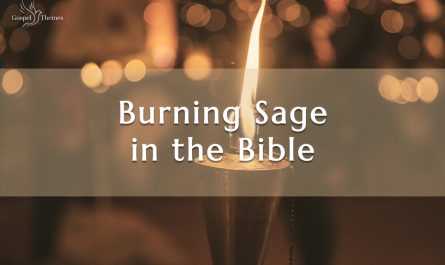In the depths of our souls, there are moments when we long for the weight of our hearts to find solace in the embrace of forgiveness. We yearn to know how to ask God for forgiveness and to embark on a journey that leads us to cleansing, reconciliation, and renewal. It’s a journey that transcends human understanding and enters the realm of divine grace.
So, let us uncover the transformative power that awaits those seeking forgiveness from the very source of all mercy and love.

How to Ask God for Forgiveness
Seeking forgiveness from God holds immense significance in our spiritual journey.
When we acknowledge our mistakes and ask God for forgiveness, we open ourselves to his infinite mercy and grace. We recognize our fallibility as humans and our need for divine intervention to overcome the burdens of guilt and shame.
In doing so, we embark on a path of healing, restoration, and renewed connection with our creator. As the Bible reminds us in 1 John 1:9:
“If we confess our sins, he is faithful and just and will forgive us our sins and purify us from all unrighteousness.”
This verse underscores the assurance that God can extend his forgiveness when we seek it.
The power of confession
A confession is an act that plays a pivotal role in seeking forgiveness from God. When we confess our sins to him, we engage in a profound act of vulnerability and honesty.
A confession lets us verbalize our transgressions. It brings them into the light and acknowledges their impact. We release the burden of secrets through confession and invite God’s cleansing and healing into our lives. As Psalm 32:5 states:
“Then I acknowledged my sin to you and did not cover up my iniquity. I said, ‘I will confess my transgressions to the LORD.’ And you forgave the guilt of my sin.”
This verse reminds us of the power of confession to free us from the guilt and shame that weigh us down. It paves the way for a renewed relationship with God, allowing us to experience the liberating power of his forgiveness.

Understanding the Nature of Forgiveness
In our spiritual journey, it’s crucial to grasp forgiveness and its impact on our lives. Forgiveness goes beyond mere pardoning or letting go of offenses.
It’s a divine concept encompassing unconditional love, mercy, and grace. Ephesians 1:7 reminds us:
“In him we have redemption through his blood, the forgiveness of sins, in accordance with the riches of God’s grace.”
This verse highlights how forgiveness ties to God’s abundant grace and his sacrificial act of redemption through Jesus Christ.
Definition of Forgiveness in a Spiritual Context
In a spiritual context, forgiveness releases resentment, anger, and judgment toward those who wronged us.
It’s a conscious choice to extend mercy and grace, following the example set by God. The Bible teaches us in Colossians 3:13:
“Bear with each other and forgive one another if any of you has a grievance against someone. Forgive as the Lord forgave you.”
This verse emphasizes that forgiveness is about letting go of any hurt and imitating God’s forgiveness towards us. It’s a transformative process that involves embracing a compassionate and understanding heart.
Exploring the Divine Attributes of God’s Forgiveness
God’s forgiveness is in his infinite love, mercy, and compassion. Psalm 103:8 captures this truth:
“The LORD is compassionate and gracious, slow to anger, abounding in love.”
Through his forgiveness, God demonstrates his will to grant us a fresh start.
Micah 7:18 assures us of God’s unwavering forgiveness:
“Who is a God like you, who pardons sin and forgives the transgression of the remnant of his inheritance? You do not stay angry forever but delight to show mercy.”
This verse highlights God’s delight in showing mercy and his desire to reconcile.
Recognizing the Transformative Power of Forgiveness in One’s Life
Forgiveness holds transformative power in our relationship with God and our personal lives. When we seek and receive God’s forgiveness, we experience liberation from guilt and shame. Isaiah 1:18 reassures us, saying:
“Come now, let us settle the matter. Though your sins are like scarlet, they shall be as white as snow; though they are red as crimson, they shall be like wool.”
This verse shows the effect of God’s forgiveness. It cleanses us from the stains of sin and offers us renewed spiritual purity. Forgiveness impacts our relationships with others and ourselves. It lets us let go of bitterness and resentment, fostering healing and reconciliation.
Matthew 6:14-15 conveys this truth, as Jesus teaches:
“For if you forgive other people when they sin against you, your heavenly Father will also forgive you. But if you do not forgive others their sins, your Father will not forgive your sins.”
This highlights the connection of forgiveness in our spiritual journey. It also emphasizes the necessity of extending forgiveness to others.

How Do We Receive God’s Forgiveness?
Receiving God’s forgiveness is a profound experience that brings healing and restoration. It’s a gift bestowed upon us through God’s boundless grace and mercy.
We have to take steps rooted in faith and sincere repentance to receive his forgiveness.
Step 1: Sincere repentance
This involves acknowledging our sins, feeling genuine remorse, and reverting our old ways. It’s a heartfelt desire for change and a willingness to align our lives with God’s will. Acts 3:19 claims:
“Repent, then, and turn to God, so that your sins may be wiped out, that times of refreshing may come from the Lord.”
The verse emphasizes the importance of remorse as the initial step toward receiving God’s forgiveness.
Step 2: Confession and humility
Once we have repented, we have to confess our sins before God. Confession involves verbalizing and acknowledging our transgressions before God, seeking forgiveness, and cleansing.
We open ourselves to his mercy through confession and experience the relief of forgiveness.
Step 3: Trusting in God’s mercy and grace
We need to have faith that God will forgive and cleanse us from all unrighteousness. Ephesians 2:4-5 reassures us, stating:
“But because of his great love for us, God, who is rich in mercy, made us alive with Christ even when we were dead in transgressions – it’s by grace you have been saved.”
This verse reminds us of God’s immense love and willingness to extend forgiveness to those who seek it. Trusting in his mercy allows us to receive forgiveness with open hearts and experience its transformative power.
Step 4: Embracing a renewed relationship
Receiving God’s forgiveness goes beyond mere pardon; it involves embracing a renewed relationship with him. As we accept his forgiveness, we walk in obedience, seeking his guidance and following his ways. Isaiah 43:25 assures us, saying:
“I, even I, am he who blots out your transgressions, for my own sake, and remembers your sins no more.”
These verses highlight the depth of God’s forgiveness and his desire to restore our relationship with him. Embracing a renewed relationship involves living in gratitude, pursuing righteousness, and seeking his presence.
Through these steps, we can experience the liberating power of his forgiveness and walk in the freedom of his love. May we receive God’s forgiveness with gratitude and allow it to shape and transform our lives.

The Boundless Gifts of God’s Forgiveness
God’s forgiveness offers us many profound and life-changing gifts. It’s not erasing our sins but a doorway to transformation, restoration, and a renewed relationship with our creator.
Understanding what God’s forgiveness offers allows us to embrace its fullness. Let us explore some of the remarkable gifts God’s forgiveness brings into our lives.
Cleansing and freedom
God’s forgiveness offers us the advantage of cleansing and freedom from guilt and shame. When we seek his forgiveness, he wipes away our sins, making us whiter than snow.
Through his forgiveness, God purifies our hearts, liberating us from the burden of past mistakes and giving us a fresh start.
Reconciliation and restored relationship
Another precious gift of God’s forgiveness is reconciliation and a restored relationship with him. Our sins create a separation between God and us, but through his forgiveness, that separation gets bridged. 2 Corinthians 5:18-19 reminds us:
“All this is from God, who reconciled us to himself through Christ… that God was reconciling the world to himself in Christ, not counting people’s sins against them.”
Through Jesus’ sacrifice, God offers us forgiveness, inviting us into an intimate and unbreakable bond with him. We are no longer estranged but embraced as his beloved children.
Healing and renewal
God’s forgiveness brings healing and renewal to our wounded souls. When we receive his forgiveness, his divine love pours into our brokenness, bringing restoration and wholeness. Psalm 147:3 states:
“He heals the brokenhearted and binds up their wounds.”
Through his forgiveness, God heals the deep wounds caused by sin, mending our spirits and restoring our joy. He offers us a fresh start, equipping us to walk in his purposes and experience abundant life.
Grace and second chances
One of the remarkable gifts of God’s forgiveness is his abundant grace and the opportunity for second chances.
God’s forgiveness reveals the depth of his grace. It allows us to turn away from our old ways, learn from our mistakes, and grow in his love. It also reminds us that no sin is too great for his grace to cover.
But what if we keep repeating the same sin? Find out if God forgives us for repeating the same sin.
Eternal hope and future glory
God’s forgiveness offers us eternal hope and the promise of future glory. Romans 8:1-2 proclaims:
“Therefore, there is now no condemnation for those who are in Christ Jesus, because through Christ Jesus the law of the Spirit who gives life has set you free from the law of sin and death.”
God’s forgiveness secures our future, giving us the hope of eternal life with him and the assurance that our sins will not define our destiny.
Bottom Line
Understanding how to ask God for forgiveness is vital to our spiritual journey. It’s a humbling and transformative process that opens the door to his boundless mercy and grace. By confessing our sins and trusting in his forgiveness, we can experience profound gifts like cleansing, reconciliation, healing, grace, and hope.
May you approach God, seeking his forgiveness with a pure heart, and may his transformative love and mercy guide us on a journey of renewal and restoration.

 by
by 

